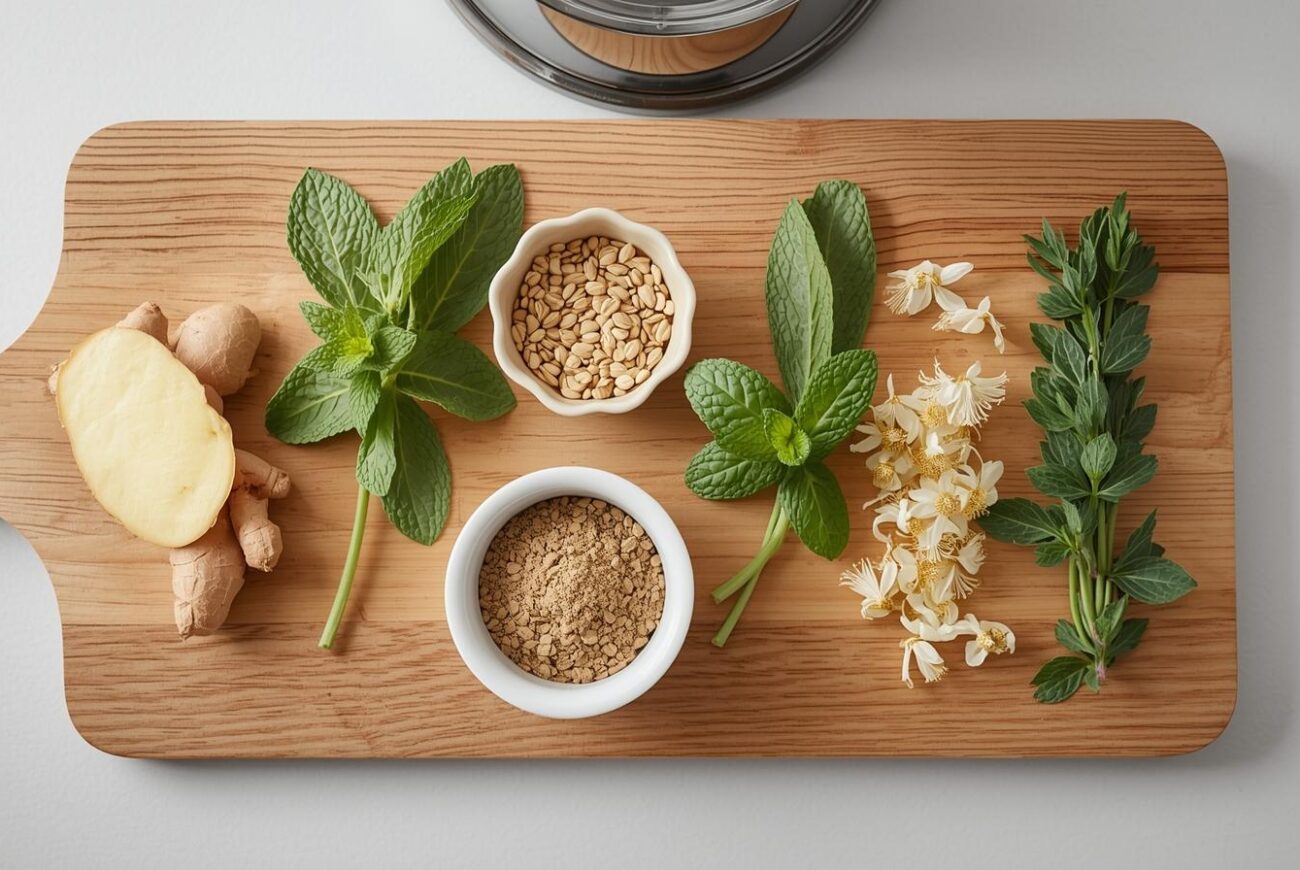
5 Herbs that Support Your Dog’s Digestion
Important: herbs can support a healthy gut, but they don’t replace veterinary care. If your dog has ongoing vomiting or diarrhoea, blood in stool, repeated painful bloating/retching, weight loss, dehydration, fever, lethargy, or won’t keep water down, speak to your vet first. Introduce any new ingredient slowly and in small amounts.
1) Ginger (Zingiber officinale)
Helps with: mild gas, queasiness, travel upset; supports gastric motility.
How to use: grate fresh ginger and mix a tiny pinch into food, or briefly infuse a slice in hot broth/stock, then strain and add a spoon to the meal.
Starter amount: fresh root ⅛–¼ tsp per 10 kg body weight, once daily.
Safety: avoid with bleeding disorders or anticoagulant medicines; stop before surgery; don’t use in pregnancy without veterinary advice.
2) Fennel seed (Foeniculum vulgare)
Helps with: gas and mild cramping; classic carminative.
How to use: lightly crush seeds, drop into hot broth for 5–10 minutes, strain; add a small spoon of the infused broth to food.
Starter amount: 1–2 tsp infused broth per 5 kg body weight, up to twice daily.
Safety: stick to culinary amounts; avoid in pregnancy or with hormone-sensitive conditions.
3) Peppermint leaf (Mentha piperita) — leaf only, never essential oil
Helps with: post-meal fullness and mild bloating by relaxing gut smooth muscle.
How to use: infuse a few leaves in hot broth for 5 minutes, remove leaves, cool, add a spoon to food.
Starter amount: 1–2 tsp infused broth per 5 kg after meals.
Safety: avoid with reflux/GERD or in tiny toy breeds prone to regurgitation; do not use peppermint essential oil in or on dogs.
4) Chamomile (Matricaria chamomilla)
Helps with: tense, gassy bellies; mild antispasmodic and calming effects.
How to use: infuse ½ tsp dried flowers in hot broth for 5–7 minutes, strain; add a spoon to the meal.
Starter amount: 1–2 tsp infused broth per 5 kg, up to twice daily.
Safety: avoid if your dog has known allergies to daisies/ragweed; use caution with sedative medicines; avoid in pregnancy unless your vet approves.
5) Slippery elm bark (Ulmus rubra)
Helps with: irritated stomach or intestines; soothing mucilage coats the gut lining.
How to use: mix fine powder with warm water to a smooth porridge and feed separately from meals.
Starter amount: ¼ tsp powder per 5 kg body weight, 1–2 times daily, given at least 2 hours away from any medication to avoid reduced absorption.
Sustainability note: choose reputable, sustainably sourced bark. If unavailable, marshmallow root (Althaea officinalis) prepared the same way is a gentler alternative.
Simple, kitchen-first ways to use these herbs





